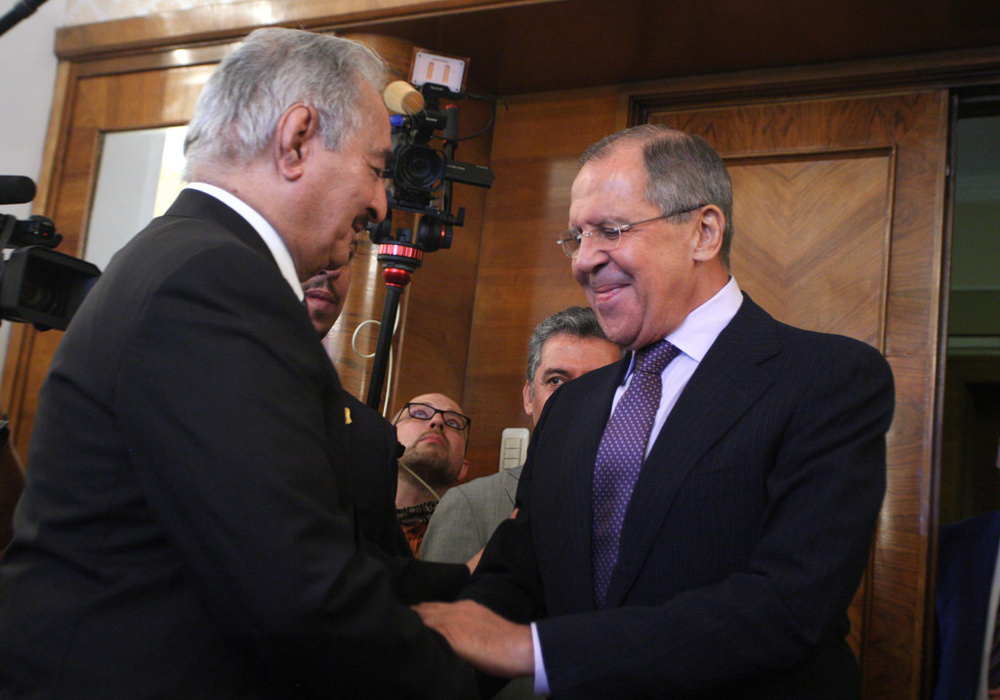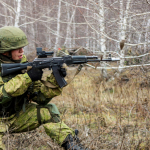RUSSIA MONITOR
Date: 21 August 2017
Moscow enters the Libyan game
Libyan commander Khalifa Haftar’s recent visit to Moscow has confirmed that Russian participation in the Libyan conflict is still growing. The general met the foreign and defense ministers. According to Russia’s Ministry of Foreign Affairs, the country supports efforts undertaken by Haftar and the UN-backed Libya’s Prime Minister Fayez al-Sarraj whose aim is to introduce a peace treaty. But the meeting with the Russian Minister of Defence was not so peaceful – it may happen that Haftar will strengthen the military cooperation with Moscow. The aim of the Kremlin is not a peaceful compromise in the Libyan civil war, but it rather seeks to gain influence and to make this country a new ally of Russia in the region.

Haftar arrived in Moscow once al-Sarraj and him had agreed on a 10-point joint declaration on a new ceasefire initiative. It may, but doesn’t necessarily have to, lead to the end of the Libyan civil war. The primary conflict takes place between Libya’s Government of National Accord in Tripoli backed by the United Nations, the United States and most of EU states and competitive government in the east of the country along with the Tobruk Parliament and allied troops of General Haftar supported by Egypt, United Arab Emirates and Russia. In October 2015, in a speech to his commanders, Haftar announced that Russia had promised him to help in the fight against terrorists. In June 2016, during his visit to Moscow, he met Russian defence minister Sergei Shoygu and Secretary of the Security Council Nikolai Patrushev. Also in November 2016, he paid visit to Russia where he took part in a discussion with Sergei Lavrov and participated in some meetings in the Ministry of Defence. In January 2017, Haftar visited the Russian aircraft carrier Admiral Kuznetsov, when it was coming back from the area of Syria.
Vladimir Putin, humiliated in 2011, wants to return as a key player to Libya, a country that, under Gaddafi’s rule, was one of the most reliable allies of Moscow in this region. Current political forces, along with the government in Tripoli on one hand, the parliament in Tobruk and Haftar’s domination on Libya’s oil crescent on the other against various regional militia and ISIS terrorists as main enemies, will not be supposed to last for a long time. A change needs to occur and Putin wants to participate in it.
All texts published by the Warsaw Institute Foundation may be disseminated on the condition that their origin is credited. Images may not be used without permission.










